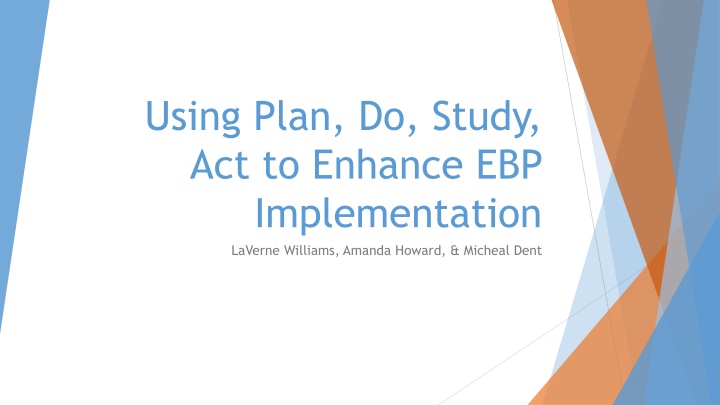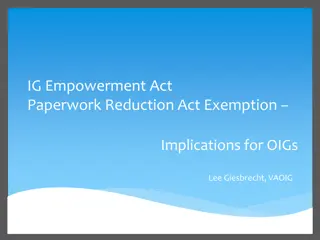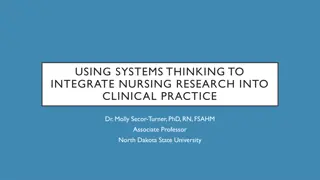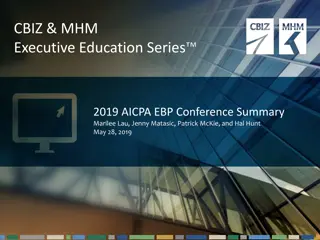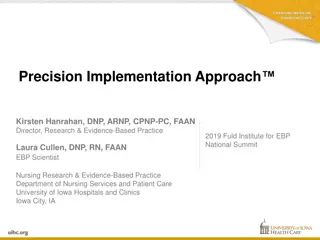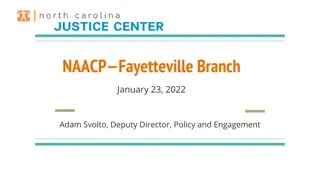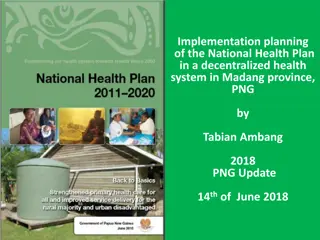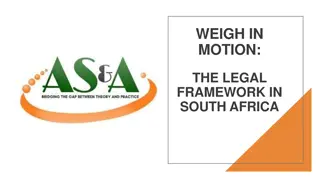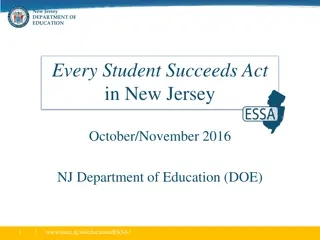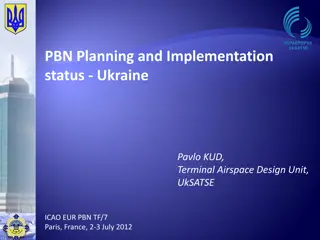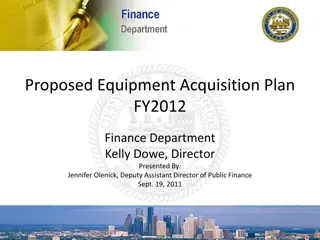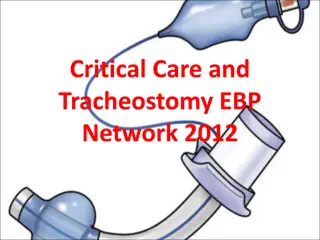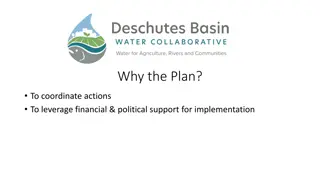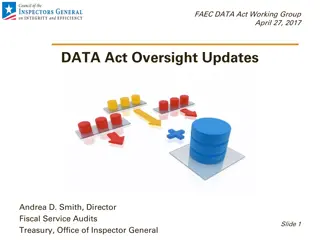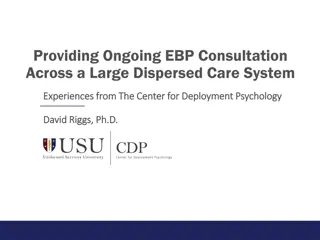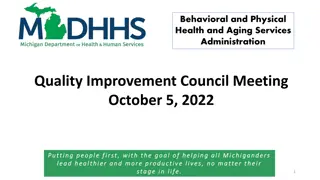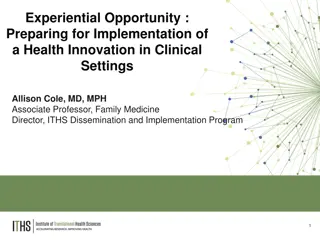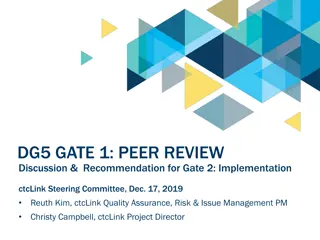Enhancing EBP Implementation Using Plan Do Study Act
The project focuses on enhancing Evidence-Based Practice (EBP) implementation by utilizing the Plan-Do-Study-Act (PDSA) cycle. It addresses the challenges faced in a correctional setting, such as high client counts, turnover rates, and staffing issues. The initiative aims to improve caseworker skill utilization through skill meetings and audio submissions, addressing the decline in My Utilized Skills percentages. The strategy involves ongoing training, coaching, and problem-solving to boost performance and promote individual skill development.
Download Presentation

Please find below an Image/Link to download the presentation.
The content on the website is provided AS IS for your information and personal use only. It may not be sold, licensed, or shared on other websites without obtaining consent from the author.If you encounter any issues during the download, it is possible that the publisher has removed the file from their server.
You are allowed to download the files provided on this website for personal or commercial use, subject to the condition that they are used lawfully. All files are the property of their respective owners.
The content on the website is provided AS IS for your information and personal use only. It may not be sold, licensed, or shared on other websites without obtaining consent from the author.
E N D
Presentation Transcript
Using Plan, Do, Study, Act to Enhance EBP Implementation LaVerne Williams, Amanda Howard, & Micheal Dent
Background: Higher client count Client turned over faster Higher caseworker case loads Staffing Turnover after COVID-19 High Front-Line Staff turnover New Administrator New Coordinator New Continuous Quality Improvement Specialist 3 New Caseworkers
EPICS II What is EPICS Effective Practices in a Correctional Setting II Assessment Skills Intervention Skills Bridging Skills/Core Correctional Practices Supplemental Skills Problem Solving Criminal Thinking Scale
Agency Expectations: At least 70% of all caseworker meetings utilize a skill Caseworkers submit audio recordings for Quality Assurance purposes Audio Submission amount is based on proficiency level 11 different areas to receive a rating in Ongoing training that is required based of proficiency level Ongoing Coaching
Plan PDSA Act Do Study
Problem Statement In 2022 the RIPP facility experienced a 100% turnover in the following positions: 5 Caseworkers Program Coordinator Program Administrator CQI Specialist The My Utilized Skills (MUS) percentages which measures EPICS II skill utilization and audio submissions for Caseworkers had declined. Teach-backs were not enough to promote skill development due to lack of individual training space (CWs share offices) and lack of available sessions in the skills that were needed.
Audio Submissions at the RIPP Facility from April 2022-December 2022
Goals Provide support for the caseworkers to earn their EPICS II rating Increase the MUS percentage Increase CW comfort with EPICS II skills Caseworker retention Promote a partnership in which CQI and Facility Supervision were working in collaboration to promote an active learning environment.
Plan Mapping meeting between PC Williams and CQI Reviewed MUS % and Reviewed Audio Assignments/submissions Weekly in house trainings 1 hour before BMC on Tuesdays. Skill overview Role Play (Modeling between Coordinator and CQI) Role Play each staff in groups Met with PA Micheal Dent Discussed the plan that PC Williams and CQI decided upon Looked at available Teachbacks Realized that doing this in house weekly would be a way to train all caseworkers at a faster pace than what was being offered. Made a schedule based on EPICS skills Looked at how to best build a team approach to learning Invited guest instructors to participate
Do PC Williams set a meeting between all of the Caseworkers and CQI on 12/13/2022. During this meeting the goals were shared, expectations were set and questions were answered Required attendance at weekly training sessions Submission of required audios
Collaborative Weekly Trainings Weekly trainings were held each Tuesday for One Hour. During this time we used the following training techniques: Overview of the EPICS II Skill Coordinator and CQI demonstrated the skill Time for Questions and Answers Divided the Case Workers into pairs to practice the skill PC and CQI walked around giving feedback in real time Demonstration giving by a selected group Debriefing
Study Increase in audio submissions: October 2022- 2 total audio submissions November 2022- 2 total audio submissions December 2022- 14 total audio submissions (note during this time there were several audios that were not required due to time off for the caseworkers) January 2023- 15 total audio submissions as of 01/23/2023 and an additional 8 audios submitted for caseworkers who were rated in a skill but wanted extra non graded feedback. Increase in questions asked by caseworkers January MUS will be examined in the beginning of February to look for increase in MUS percentage and overall skills. Caseworkers are reporting feeling more comfortable using a variety of EPICS skills in case management meetings.
Audio Submissions January- April 2023
Act This training model was presented to all leadership staff for the agency. Other CQI staff from all regions shadowed the process to replicate this in the facilities that they work in. With turnover we are as in agency revaluating this and plan to complete another round of PDSA. Since the PDSA is a cycle their can be multiple runs before a process has moved into a standard practice.
Activity Mrs. Potato Head PDSA Activity, permission to use by David Williams
Directions Each table elect 3 roles Time keeper Responsible for keeping time Quality Assurance Responsible for comparing the assembly to the standard Assembler Putting together the model
Group responsibilities to observe strengths and improvement areas and provide input into the plan. These roles will remain the same throughout the activity
Debrief How did it go? What would you do differently?
Summary Most implementation stops with the Do. When implementing a new process it may take multiple cycles of the PDSA process in order to gain the desired result.
